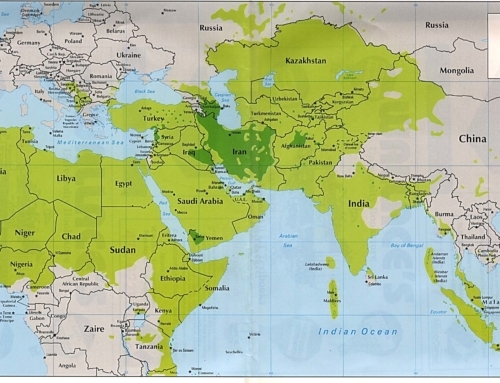Mastering First Impressions
First impressions are the most important because they are almost impossible to remove or undo. They set the tone for the rest of the relationship. Therefore, everyone strives to make a good impression on the first day of work, school, or when meeting someone important. As an educator, the impression I give my students on the first day of class is extremely important and sets the tone for the rest of the semester. If I present myself as very strict, students are likely to be intimidated and that can negatively impact their learning. Conversely, if I present myself as too lenient students may not take me or the class seriously.
Unconditional Love & Compassion in Islam
In Islam, God has ninety-nine names and attributes. God’s name al-Raḥmān is often mistranslated as mercy. Mercy implies that one can punish or inflict harm, but simply refrains from doing so. While mercy is certainly a part of the name al-Raḥmān, it is does not give a proper definition. A womb in Arabic is referred to as “raḥim”, and family relations are called arḥām. These terms stem from the same root as God’s name al-Rahman. The relationship a mother has with her child is not mercy, but unconditional love, compassion, and mercy. During the life of the Prophet, peace be upon him, a mother lost her child. When she found her child she quickly hugged him and began to nurse him. The Prophet, peace be upon him, asked his Companions “Do you think this woman could throw her child in the fire?” We said, “No, not if it was up to her.” The Prophet said, “Allah has more raḥma toward His servants than a mother has on her child.” (Bukhari).
The Boundless Raḥma of Al-Raḥmān
The name Al-Raḥmān has a similar connotation. God unconditionally has raḥma on us. He provides for everyone, even those who reject His existence with life, sustenance, clothing, and shelter. This is not to say that God accepts and overlooks evil actions, but despite our evil God still has a level of raḥma on us. There is another category of love that God reserves for the good doers, which He calls ḥub. Ḥub is a level above raḥma and God reserves that for those who obey Him. In the Qurʾān, God never says that he hates (kurh or yakrah) sinners or wrong doers, rather He states that He does not have ḥub for them. Nevertheless, He still has raḥma towards them, God says in the Qurʾān, My raḥma has encompassed all things (Q. 7: 156).
First Impressions & Divine Attributes
What does this all have to do with first impressions? Despite God having ninety-nine names and attributes, He begins every chapter in the Qurʾān, apart from one, with His names Al-Raḥmān and Al-Raḥīm. Despite God having ninety-nine names, He chose to use these two each time to emphasize that His raḥma is vast and His door is always open. This is to remind the reader that no matter what one does, God in Islam is loving, compassionate, merciful, and will happily except all who turn to Him in repentance.
Got Questions?
We have Answers. Get in touch now.








